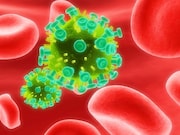Intervention group had greater reduction in condomless sex acts versus standard of care group
TUESDAY, Aug. 14, 2018 (HealthDay News) — A culturally specific, empowerment-based, and group-delivered behavioral prevention intervention can reduce sexual risk for HIV acquisition and transmission in sexually active young transgender women (YTW), according to a study published online Aug. 13 in JAMA Pediatrics.
Robert Garofalo, M.D., M.P.H., from the Ann & Robert H. Lurie Children’s Hospital in Chicago, and colleagues conducted a randomized efficacy trial of a group-delivered behavioral HIV prevention intervention (Project LifeSkills) versus standard of care among 190 sexually active YTW (aged 16 to 29 years) to reduce sexual risk for HIV acquisition or transmission. Participants were randomized to the LifeSkills intervention (116 participants), standard of care only (74 participants), or a diet and nutrition time- and attention-matched control (43 participants). Per the Data Safety and Monitoring Board’s recommendation, the attention control arm was dropped.
The researchers found that, compared with the standard of care group, the LifeSkills group had a 30.8 percent greater mean reduction in condomless sex acts from baseline to four months (risk ratio, 0.69). At the 12-month follow-up visit, the LifeSkills group had a 39.8 percent greater mean reduction in condomless sex acts compared with the standard of care group (risk ratio, 0.60).
“This trial is the first to date to demonstrate evidence of efficacy for a behavioral intervention to reduce sexual risk in YTW,” the authors write.
Copyright © 2018 HealthDay. All rights reserved.








